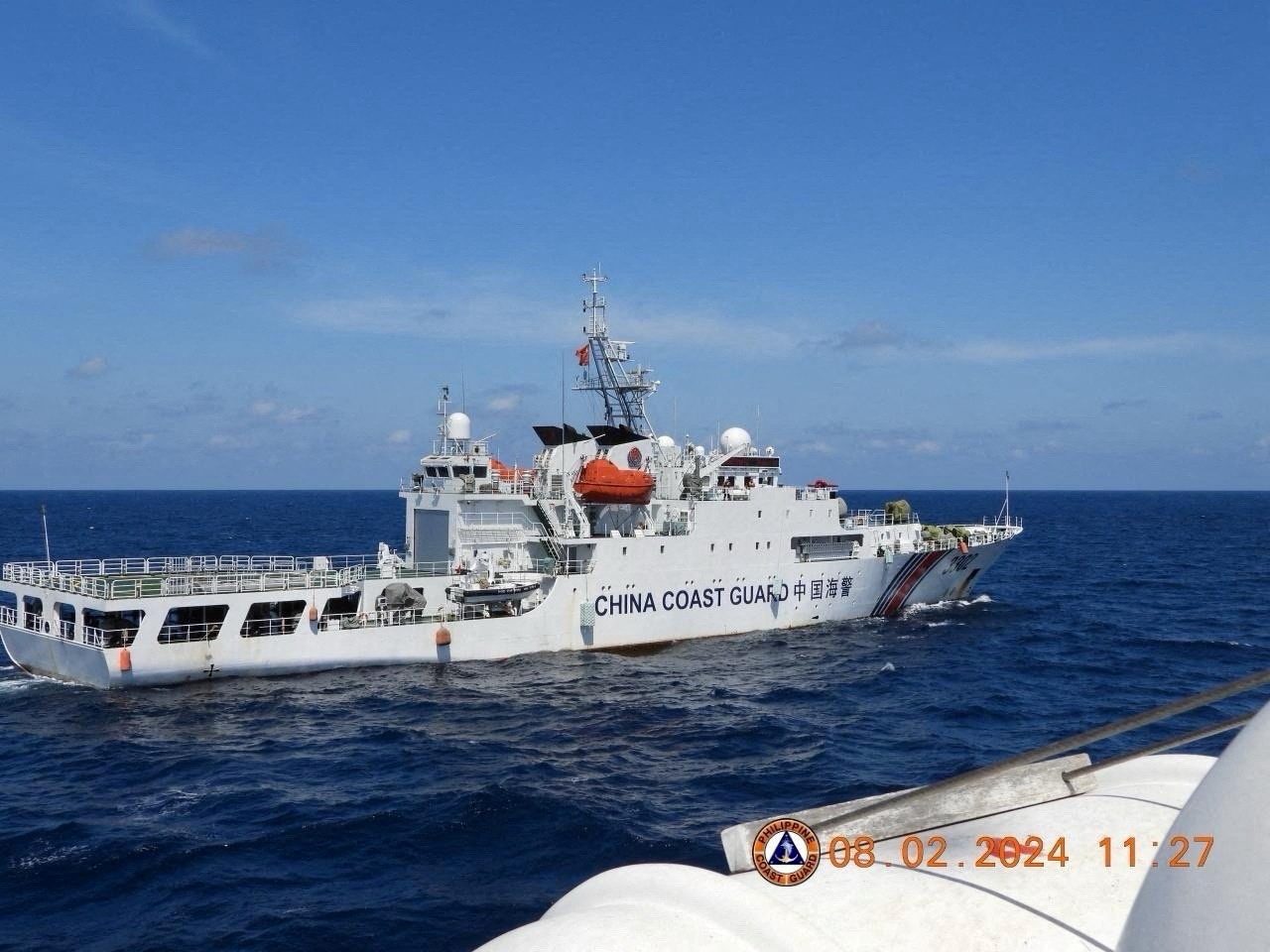SUMMARY
This is AI generated summarization, which may have errors. For context, always refer to the full article.

MANILA, Philippines – The European Union (EU) on Friday, June 21, criticized China’s new coast guard regulation, saying it “adds to tensions” and hinders the path to a “durable solution” of disputes in the South China Sea.
The EU issued the statement days after the tensest and most violent incident between Chinese and Filipino personnel in the West Philippine Sea, which left one Filipino personnel seriously hurt.
“China’s new ‘Coast Guard Regulation’ which entered into force on 15 June has added to tensions, rather than reducing them. This new Regulation mandates the detention of foreign persons and vessels throughout the entire area claimed by China, further negating the findings of the 2016 arbitral tribunal, and undermining core principles of UN Convention on the Law of the Sea (UNCLOS),” the bloc said in a statement.
China continues to reject the 2016 Arbitral Ruling, which deemed invalid its sweeping claim of most of the South China Sea. China has doubled down on its claim on waters it considers it own, including the South China Sea.
“The EU believes that such unilateral measures make it more difficult to achieve a durable solution to disputes in the South China Sea and increase the risk of dangerous confrontation.”
“Dangerous collisions are occurring with increasing regularity in the South China Sea, adding to a steady escalation of tensions, which must be defused rather than prolonged. The EU therefore reiterates its longstanding call for restraint and full respect of the relevant international rules, to ensure the peaceful resolution of differences and reduction of tensions in the region,” it added.
Days after the new rule kicked in, on June 17, China Coast Guard (CCG) personnel harassed Filipino forces on a resupply mission to Ayungin Shoal, in what has been the most tense incident between the two countries to date.
The Philippines was conducting a regular rotation and resupply mission to bring provisions and rotate personnel aboard the BRP Sierra Madre, a warship that was run aground in 1999 and has since served as a military outpost in the shoal. The CCG repeatedly rammed at the rigid hull inflatable boats (RHIBs) of the Philippine Navy.
Footage from the Philippine military have also showed CCG personnel wielding bladed weapons, using loud sirens, and even throwing rock at Filipino soldiers already moored beside the BRP Sierra Madre in Ayungin Shoal.

China also towed one of the RHIBs, puncturing its tube and purposefully damaging equipment on board. One Filipino soldier lost his thumb during the melee, as China’s RHIBs and steel hulled boats rammed the Philippine Navy ships relentlessly.
In a statement released Friday, June 21 (June 20 in Berlin), Germany’s Federal Foreign Office said the German government was “watching China’s behavior in the South China Sea with great concern,” calling the images and videos from the AFP of the incident “disturbing.”
“The incident occurred in the sea areas around Second Thomas Shoal, which are part of the Philippine Exclusive Economic Zone according to the 2016 arbitration award under the United Nations Convention on the Law of the Sea (UNCLOS), which is binding on China and the Philippines,” said Berlin.
The European Union member-country added: “Dangerous and irresponsible maneuvers and actions such as the incident last Monday are contrary to UNCLOS and increase the risk of further escalation.”
“Germany will continue to work together with international partners for the comprehensive enforcement of UNCLOS, for freedom of navigation, for peaceful dispute settlement and for the maintenance of peace and stability,” Germany said.
During a January 2024 visit to Manila, Germany’s foreign affairs minister Annalena Baerbock warned of “rough winds blowing across the South China Sea.”
Tensions between the Philippines and China over the West Philippine Sea, an area within the South China Sea that includes Manila’s exclusive economic zone (EEZ), have been increasing in the past year.
Even before the June 17 incident, China has been routinely harassing and trying to block Philippine mission to flashpoints in the West Philippine Sea – in Ayungin and Panatag Shoal, especially.
The Philippines has made it policy to expose Chinese actions in the West Philippine Sea.
China maintains territorial sovereignty claims over the Spratly Islands or Nansha Islands as a whole, including the reefs, islets and shoals there. – Rappler.com
ALSO ON RAPPLER
- [OPINION] Law and justice in the West Philippine Sea
- ANALYSIS: The most complicated dispute in the world
- G7 leaders express serious concern over situation in East and South China Seas
Add a comment
How does this make you feel?





![[ANALYSIS] High noon for Marcos](https://www.rappler.com/tachyon/2024/06/high-noon-for-marcos.jpg?resize=257%2C257&crop_strategy=attention)



![[Just Saying] Invoke the Mutual Defense Treaty](https://www.rappler.com/tachyon/2024/06/TL-invoke-mutual-defense-treaty-June-25-2024.jpg?resize=257%2C257&crop_strategy=attention)
![[ANALYSIS] The West Philippine Sea dispute and the stock market’s performance](https://www.rappler.com/tachyon/2024/06/thought-leaders-west-ph-sea-dispute-and-market-performance.jpg?resize=257%2C257&crop=134px%2C0px%2C720px%2C720px)

![[Rappler Investigates] When China, Leila, Sara conspire](https://www.rappler.com/tachyon/2024/06/saraduterte-west-ph-sea-leila-de-lima-newsletter-june-27-2024.jpg?resize=257%2C257&crop=279px%2C0px%2C720px%2C720px)
There are no comments yet. Add your comment to start the conversation.